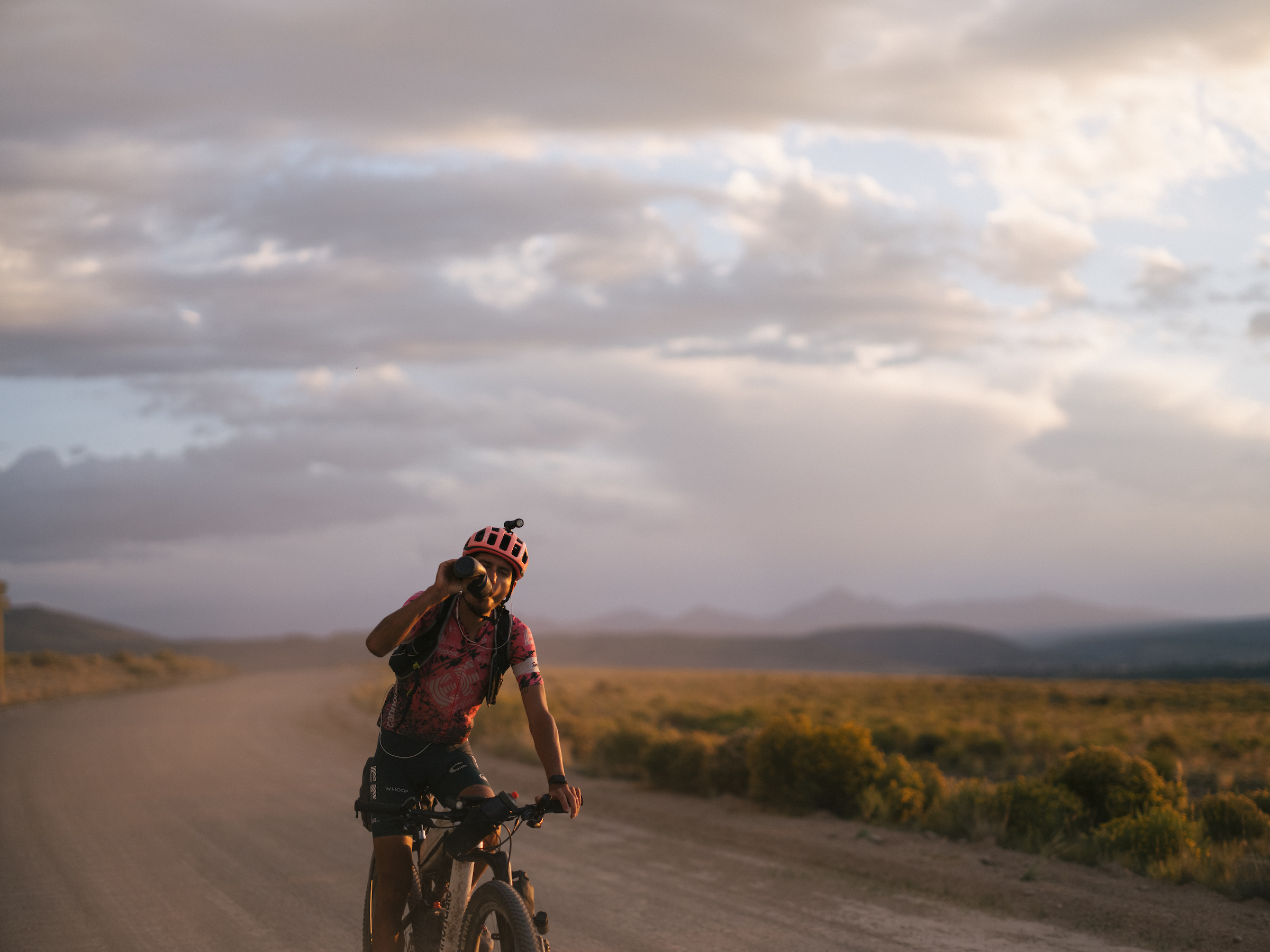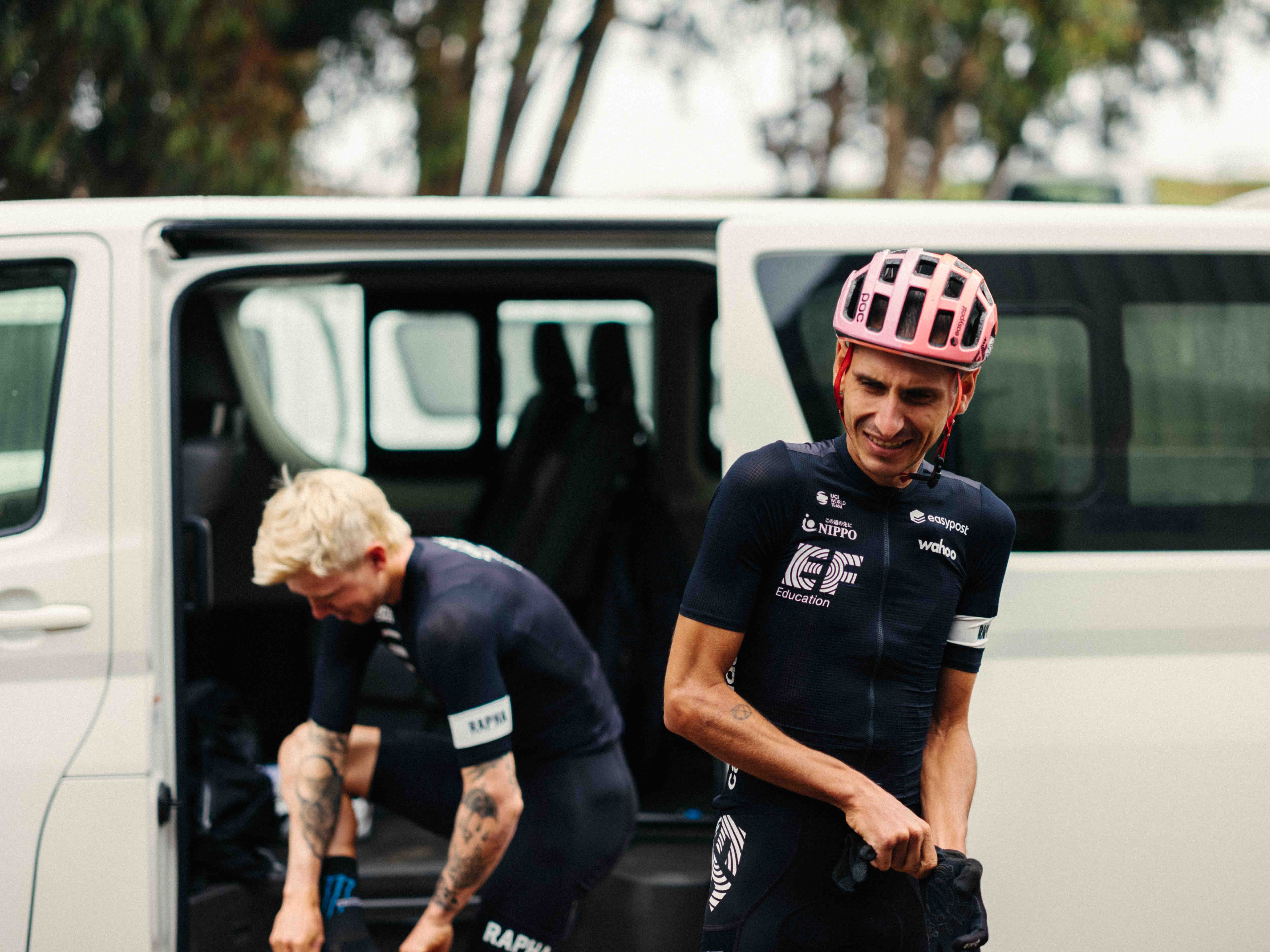Lachlan Morton: Gravel is changing, that's not a bad thing
Australian targets Unbound as busy gravel season replaces around-the-world record attempt

Lachlan Morton, with his relaxed attitude toward racing and life in general, is the embodiment of the spirit of gravel racing. In one way, the increased participation in gravel events by WorldTour road racers like the EF Education-EasyPost rider has disrupted the ecosystem and led to culture wars. On the other hand, Morton's approach to cycling in general exudes the same ethos as gravel - that events should be enjoyable.
So after Adam Roberge came under fire for employing road-like tactics to win Gravel Locos earlier this month and then accused his rivals of trying to sabotage his livelihood, it was no surprise that Morton took a positive interpretation of the incident.
"I think it's growing pains," Morton tells Cyclingnews.
"People want to keep [gravel racing] as it is, or they only want to keep it as competitive as they're willing to make it. I can see some of the merit in that, but I can also say, there are a lot of people who just want it to stay the same, so they can stay competitive and relevant.
"Everyone's trying to hustle up their living but trying to pretend like you're there for the fun of it doesn't really do anyone any favours. The reality is at the front of those races, it's not high fives and a pat on the back. Everyone's racing each other.
"Where you draw the line between what's competition and what's fair fight - I don't know. I've never really been able to draw that line. I think if you want to have a fun, relaxed time you can race at the back. If you want to race at the front, you're probably gonna get annoyed at certain competitors at certain times. It's a race. I don't think there's a right or wrong answer."
This year, as his teammates tackle the Giro d'Italia and Tour de France, he's circling the globe on racing gravel. His next stop is Unbound Gravel 200 in Emporia, Kansas - arguably the Tour de France of the gravel circuit, and a race he has yet to win.
Get The Leadout Newsletter
The latest race content, interviews, features, reviews and expert buying guides, direct to your inbox!
"It's a cool race. It's obviously the biggest gravel race in the world - it's very competitive. And the level of competition is really high. But it's a pretty fun course and just a big, hard day out. I think anyone who has raced it before would love to win it. But you have to have no bad luck and good legs."
Morton, who is also one of the athletes in the Life Time Grand Prix series, was one of several riders who relied on aero bars during Unbound 200 - another "storm in a teacup" that injected drama into the gravel scene.
This year, Unbound organisers are outlawing the use of aero bars, but again, Morton is unfazed.
"If you can use them, use them. If you can't use them, you don't. I don't really care one way or the other. I think the biggest difference will be no one will have anything to talk about for the week before the race," he jokes.
"There was always a lot of debate around aero bars, no aero bars, if it's safe or whatever. Realistically, I think people are just going to flop their hands on their bars anyway. So you'd probably be better off having something to hang on to."
The dramas aside, Morton sees them as evidence that the sport is moving forward and some riders' resistance to it.
"You can't really have ownership over the way the sport goes. Because it's gonna go in the way that people push it ... if you sit there and try and control it, I don't think that's very healthy either.
"I just kind of try and focus on the way I carry myself, the way I race, and the way I approach it, and then you just have to hope that people see the value in that or they don't and the sport of will go whichever way.
"The biggest thing is, as long as teams don't come into it, it's gonna stay really cool. It can get as competitive as it wants, but as long as it stays solo individual riders out there racing hard, it's going to be cool racing and will always be fun to be part of. I think that's like my only hope for gravel racing."
"The sport is changing and that's not a bad thing. I don't think it has to be seen as this monster. I think growth is a good thing. And the amount of people you see trying to get on that start line every year and how much it goes up every year - I hope it continues to grow more and more crazy."
Around the world

Just as Morton distances himself from what he calls "the little gravel dramas", he maintains a worldly perspective on sport and life in general.
Morton had announced plans to challenge Mark Beaumont's around-the-world cycling record this year, the current record standing at 78 days, 14 hours and 40 minutes. However, Morton's attempt has been stifled because of the Russian invasion of Ukraine.
"The way it's set out in the rules, it's very hard to go for that record without passing through Russia. And that's just not a possibility or something I want to do at this minute. It's definitely still something it's on my radar.
"I think it'd be a cool thing to do while I'm still with EF because logistically, to try and do it yourself would be an absolute nightmare. And I don't really have an interest in the little logistical side, I just like to ride.
"It's something I'd really love to do with the team, but we just have to be patient. Ultimately, there are a lot bigger impacts of that conflict than me not riding around the world. So you if put it in perspective - the time will come, and when the time comes, we'll go and do it. Until then, there's plenty of bike races to do and plenty of fun adventures to go on."
Morton had a start-stop road career, doing a two-year stint with EF Education-EasyPost predecessor Garmin-Sharp in 2013-2014, before almost retiring. A long-distance bikepacking adventure rekindled his love for riding and, after dropping back to the Continental level for two seasons and finding success at Tour of Utah, he rejoined the WorldTour with Dimension Data.
But after two seasons, Morton's wanderlust returned and he came to an agreement to join EF again with an alternative calendar.
Since then he's set records in the GBDuro, done the pandemic-inspired Everesting craze, and set the fastest known time on the Kokopelli trail. He completed an "Alt Tour de France" in 2021, racing the peloton to cover the route in just 18 days.
In giving up the rat race of the top-level road circuit and choosing to pursue tests of the limits of human endurance, Morton has gained a deep sense of the relative importance of suffering on the bike.
Last year, he rode over 1,000 kilometres from Munich, Germany to the Ukraine border in 42 hours to raise money for refugee relief in the early weeks of the Russian invasion.
He described the challenge as "one of the more difficult rides I've done" but, as always, adds a caveat: "With the backdrop of what was going on, my difficulties were very much minimalized by the fact that there was something much more terrible going on."
He took inspiration from the armies of people trying to assist the refugees of the sudden war, just as he's taken inspiration from the late Sule Kangangi, the Kenyan gravel pioneer who was the driving force behind the Migration Race. Kangangi died in a freak accident in a race in Vermont last year.
"He was probably one of the, if not the most, inspirational bikers I've met," Morton said of Kangangi. "It's gonna take years and many, many different people to fill his shoes."
He plans to return to the Migration Race across the Maasai Mara, a high-altitude wildlife refuge where riders are protected at night from lion attacks by Maasai tribespeople.
"It's a pretty wild setup," Morton says. It's a long way from sitting in a shitty hotel in France. It's a very cool departure from what most of my career has been.
"I'm very happy with where I'm at in cycling and where I'm at in my life. I'm really happy with the choices I made," Morton says. "I still love watching WorldTour racing. But I can say there's no part of me that wishes I was there."

Laura Weislo has been with Cyclingnews since 2006 after making a switch from a career in science. As Managing Editor, she coordinates coverage for North American events and global news. As former elite-level road racer who dabbled in cyclo-cross and track, Laura has a passion for all three disciplines. When not working she likes to go camping and explore lesser traveled roads, paths and gravel tracks. Laura specialises in covering doping, anti-doping, UCI governance and performing data analysis.